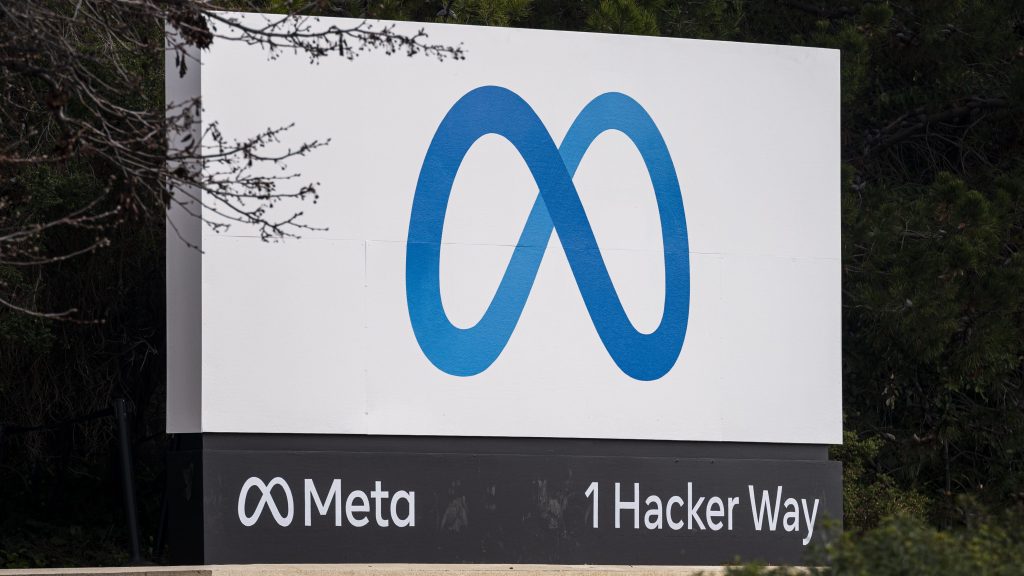Meta this week showcased its work on new generative AI technologies for its consumer products, including Instagram, WhatsApp and Messenger, as well as those being used internally at the company. At an all-hands meeting, Meta CEO Mark Zuckerberg announced several AI technologies in various stages of development, including AI chatbots for Messenger and WhatsApp, AI stickers, and other tools that would allow photo editing in Instagram Stories, in addition to internal-only products, like an AI productivity assistant and an experimental interface for interacting with AI agents, powered by Meta’s large language model LLaMA.
Axios had first reported the news of the consumer-facing AI agents and photo-editing tools, specifically. But the larger presentation touched on a number of areas where Meta is developing AI technologies and commentary about where it sees this space going.
In addition, the company announced it’s planning to host an internal AI hackathon in July focused on generative AI, which could result in new AI products that eventually make their way to Meta’s users.
The news follows Zuckerberg’s statements during Meta’s Q1 earnings that it was exploring how to put new AI technologies to use in products that reach billions of users worldwide.
During the call with investors, Zuckerberg had first teased Meta’s plans to explore “chat experiences” in WhatsApp and Messenger, as well as visual creation tools for posts on Facebook and Instagram, among other things. During the meeting, Zuckerberg shared more about these projects in a joint presentation with Ahmad Al-Dahle, VP of Engineering, Generative AI at Meta.
For instance, Meta’s AI chatbots, or AI agents as they’re being called, would allow consumers to interact with AIs that had unique personas and skill sets that could help and entertain people.
This is one of the areas in the consumer market that’s been gaining increasing attention and investment in recent months, as demand for AI chatbots has taken off. One leading app in this space, Character.AI, developed by researchers who helped build LaMDA (Language Model for Dialogue Applications) while at Google, gained over 1.7 million new installs in less than a week on the market, it said. The company is backed by $150 million in Series A funding, led by Andreessen Horowitz (a16z). However, the app competes with numerous other chatbot apps on the App Store providing similar functionality, ranging from those that allow users to develop their own AI characters, like Replika, to those that serve a particular purpose, like writing helpers or personal assistants.
Meta plans to first release its AI agents on Messenger and WhatsApp but sees a broader future for such technologies that may see them expanding across its family of applications, and eventually to smart glasses, Zuckerberg told employees. In those cases, the vision is that consumers would wear some sort of smart glasses — similar to Meta’s Ray-Ban Stories — to interact with the agents via voice.
As one example, a user at an airport could ask the agent what to do in the city for a couple of hours during a layover. Users could also prompt the agent to respond to queries in specific styles, as you could with a text-based agent. While Ray-Ban Stories are sunglasses — and not likely appropriate for smart glasses with AI chat — Meta has been developing other tech in this space, like Project Aria and efforts from its Research Lab.
In addition, Meta said in the meeting it was experimenting with AI that would allow users to engage with a text prompt in order to modify their own photos for sharing in Instagram Stories. This also comes on the heels of significant consumer interest in AI photo editors, including the viral trend of AI avatars that kicked off last year, sending apps like Lensa AI to the top of the App Store. Apps that turn words into AI photos, like Wonder, are also popular across the App Store.
In Meta’s case, the plan is to introduce AI stickers in Messenger, which could be generated from a text prompt. Another project, which has yet to enter internal testing, would allow users to type in a prompt as to how they want to edit a photo they’re planning to post to Instagram Stories.
For consumers, the benefit of Meta’s entry into this space is that these tools would be made free to use, thanks to Meta’s ad-supported business. Most competitive apps on the App Store offer only limited AI edits for free, but then push users into ongoing subscriptions to try all the features.
The meeting also showcased other ways Meta was using generative AI for internal purposes.
This included an experimental internal-only interface to an “agents playground” powered by its large language model LLaMA where Meta employees could have conversations with AI agents and then provide feedback to help the company improve its systems. It’s also working with MetaGen, which provides APIs for Meta’s text and image generation models for experimental use and prototyping, and Metamate, an internal productivity assistant that pulls information from internal sources to perform various tasks, driven by users’ text prompts.
For instance, developers could ask Metamate to help it find bugs in products they were dogfooding, while others could use it to help find space in their calendar by shifting meetings around.
Meta confirmed to TechCrunch its initial consumer-facing tools will arrive this year, likely sometime in the next few months.
“In the last year, we’ve seen some really incredible breakthroughs — qualitative breakthroughs — on generative AI and that gives us the opportunity to now go take that technology, push it forward, and build it into every single one of our products,” Zuckerberg said during the presentation. “We’re going to play an important and unique role in the industry in bringing these capabilities to billions of people in new ways that other people aren’t going to do, he added.































Comment